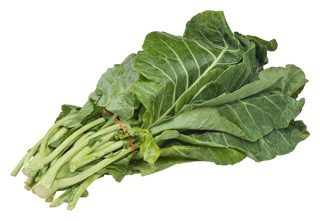

While collard greens are a nutritious addition to a dog’s diet in moderation, excessive consumption can lead to health issues due to the presence of isothiocyanates and calcium oxalate. Dogs with kidney or gallbladder problems should avoid collard greens.
Collard greens are a rich source of vitamins A and C, protein, and minerals that can boost a dog’s immune system and promote good health. They also contain antioxidants that protect against cell damage and inflammation, reducing the risk of cancer and diseases in dogs.
Collard greens are not toxic, but excessive consumption can cause kidney and bladder stones due to the presence of isothiocyanates and calcium oxalate. The stems of collard greens are hard to digest and may cause diarrhea if consumed in excess. Regular consumption of large amounts can lead to muscle weakness and respiratory paralysis in dogs.
To make collard greens easier to digest, remove the stems and cut up the leaves before boiling or steaming. Serve no more than half a cup of collard greens (measured before cooking) to your dog occasionally. Dogs with gallbladder or kidney issues should not consume collard greens.
Collard greens, also known as collards, are a leafy green vegetable that belongs to the same family as kale and broccoli. This nutritious vegetable originated in the eastern Mediterranean and is widely used in Southern American cuisine. While collard greens can be a healthy addition to your dog's diet, it should be consumed in moderation due to the risk of kidney and bladder problems caused by isothiocyanates and calcium oxalate.
Collard greens contain high levels of vitamins A and C, protein, and minerals that can provide your dog with a healthy immune system and a lot of energy. Additionally, the antioxidants present in these greens can protect against diseases and inflammation, reducing the risk of cancer in dogs.
However, excessive consumption of collard greens can cause kidney and bladder stones in your dogs. The stems of these greens are also hard to digest and might cause diarrhea in excessive amounts. Dogs with pre-existing kidney or gallbladder problems should avoid collard greens altogether.
Collard greens are readily available and can be relatively affordable depending on where you live. To make them easier to digest, remove the stems and cut the leaves before boiling or steaming. You can serve no more than half a cup of collard greens occasionally to your dog.
If your dog doesn't like collard greens or cannot eat them, you can opt for other nutritious vegetables such as spinach or green beans. These can provide the same health benefits without the risks associated with collard greens.
Do you feed your dog collard greens? What do they think about them? Remember, moderation is key when feeding your furry friend any new food. Always consult your vet before making any dietary changes.
Give your furry friend a hug from me!